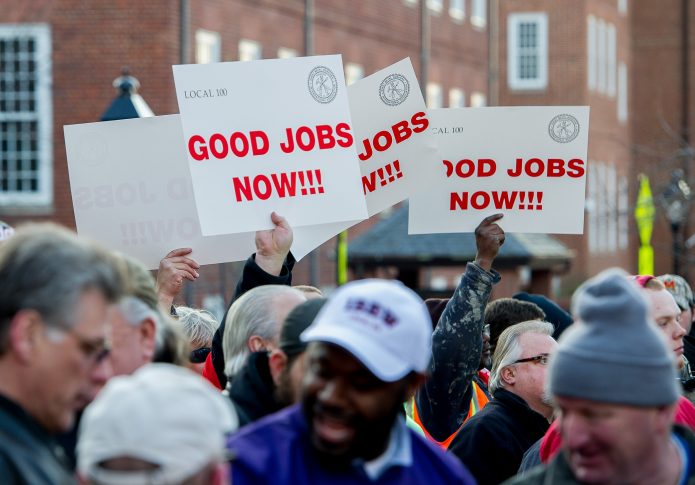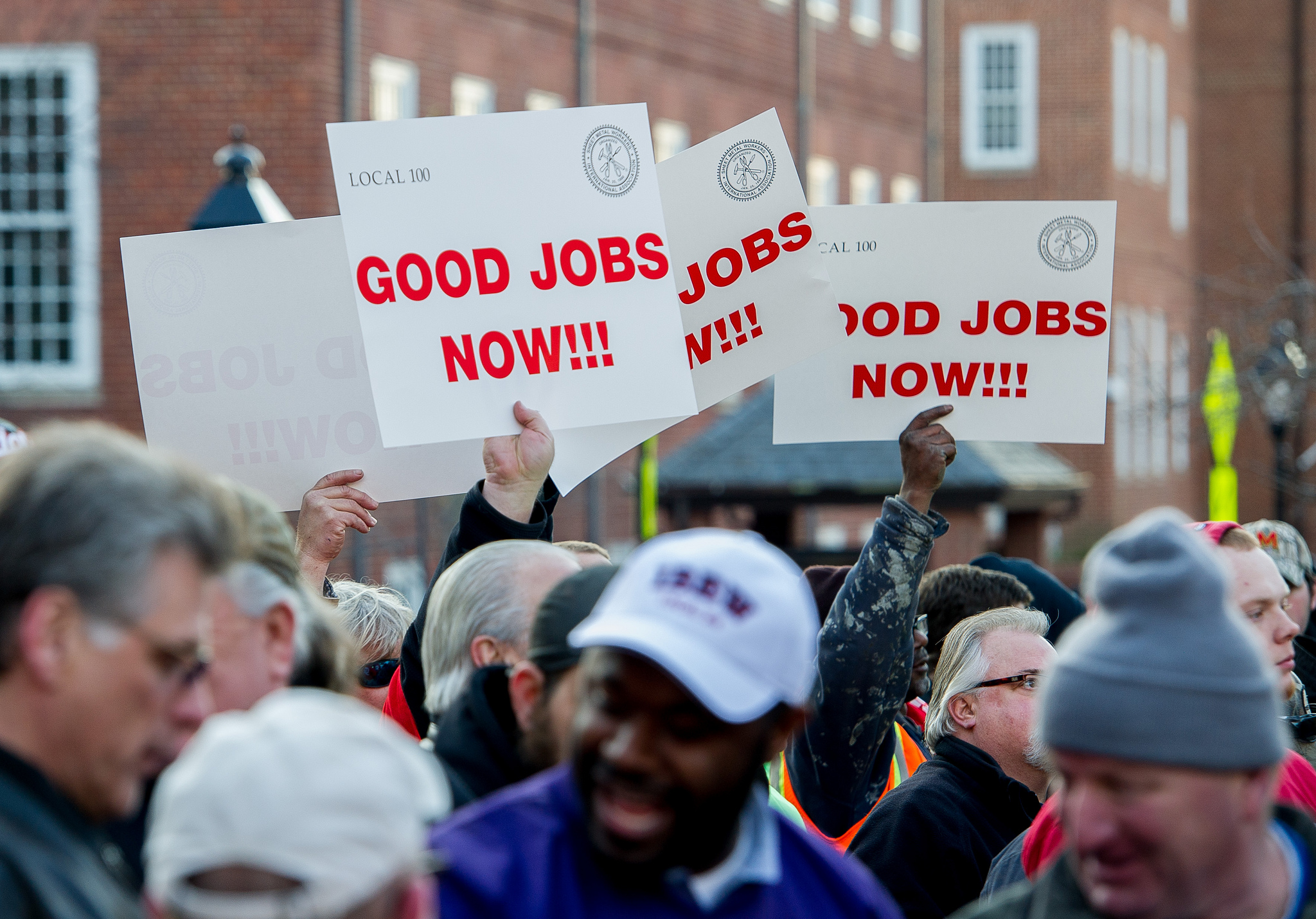
(Photo: Maryland GovPics / Flickr)
A few days before ordering airstrikes on Syria, President Trump dropped a bomb at home: He signed an executive order to require recipients of federal aid — including food stamps, Medicaid, and housing subsidies — to work.
To some, it is a solution looking for a problem. After all, more than half of recipients of federal aid programs like Medicaid already work. And the vast majority live in households where someone is earning an income. Of those who don’t work, the most commons reasons are illness, disability, school attendance, and caregiving for younger or older family members.
Still, I actually think there’s a case to make that Trump didn’t go far enough.
We idolize work in the United States. Alone among developed countries, we don’t require employers to offer paid vacation, sick leave, or parental leave. We measure our well-being in terms of GDP. (And how many people even know what that means?) And despite some of our best efforts to get a little more creative, the go-to question at dinner parties and social functions across the land is still about how we make our money.
For all our talk, though, we don’t put our money where our mouth is.
The official unemployment rate is low these days, but that obscures the fact that far too many Americans remain underemployed. Many work part time when they’d like to be full-time, earn minimum wage when they should be earning a living wage, or quit the job market altogether because an illness, disability, or criminal record makes it essentially impossible to find suitable employment. And that includes many recipients of Medicaid, food stamps, and housing subsidies.
It’s right to be against a work requirement for these people, but it’s not enough.
…
